Mountains Connect Interregional Workshop

Promoting knowledge exchange and action learning on regional governance
The Mountains Connect Interregional Workshop welcomed more than sixty participants from the Alps, Andes, Caucasus, Carpathians, East Africa, and Hindu Kush Himalaya to connect and exchange knowledge on climate change adaptation and regional governance in mountain regions.
The workshop was undertaken as part of the SDC-funded Adaptation at Altitude programme and, with the support of the University of Geneva, hosted by UNEP in Vienna, Austria.
This article provides an overview of the workshop. Read details of learning and take homes from the workshop in the full workshop report here.
In the framework of the International Year of Sustainable Mountain Development 2022, the workshop specifically set out to:
- Support learning and knowledge exchange between colleagues from several mountain regions on various approaches of mountain range governance;
- Promote the exchange of information and experiences on mechanisms for policy integration and regional collaboration;
- Strengthen transboundary climate change adaptation by fostering regional as well as interregional action learning; and
- Identify areas for transnational climate action that complement national and sub-national approaches taking into account the interlinkages between climate, environmental, nature conservation and socio-economic opportunities and constraints.
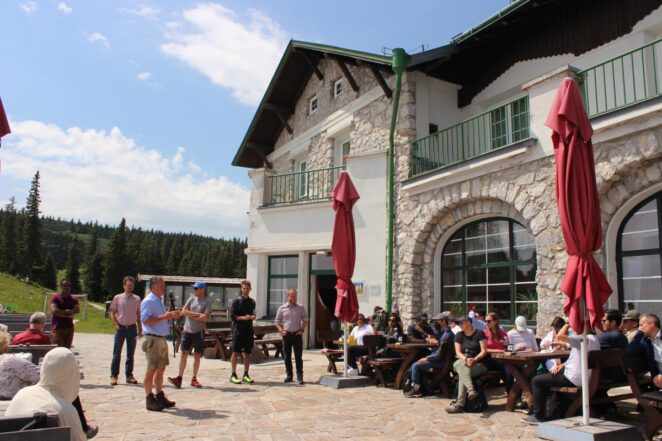
Enabling action learning
The workshop provided numerous and diverse opportunities for learning, exchange and relationship building between participants. You can find the full agenda here.
Day 1: Alpine Excursion
The workshop kicked off with a trip to the Rax mountains on the Eastern edge of the Alps during which participants exchanged on and discussed important elements of adaptation and regional collaboration in mountains. First, findings from the IPCC AR6 WGII cross-chapter paper on mountains and their relevance for regional collaboration were discussed together with the chapter’s lead authors. Next, the Deputy Secretary General of the Alpine Convention presented the Alps as a living and natural space and the Chair of the Alpine Climate Board (ACB) highlighted their work towards climate-neutral and resilient Alps by 2050. The vivid discussion focused amongst others on inclusive and multi-level governance approaches and sustainable management of mountain resources.
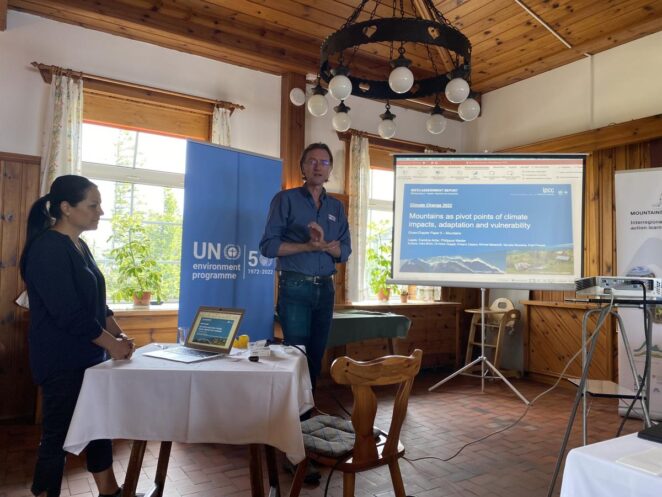
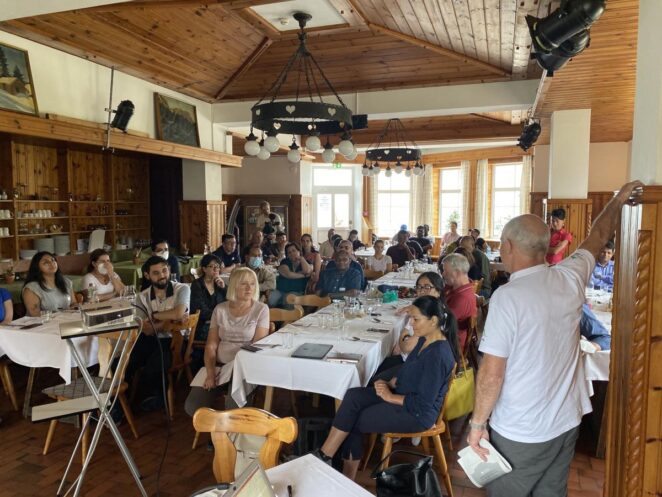
Next, the Viennese forest service and Austrian Torrent and Avalanche Control Service presented the Rax mountains and their role as water towers for Vienna, providing more than 220,000m3 of fresh drinking water directly to the city since the 1870s. The participants also learned about the climate risks- such as a 2021 forest fire on the slopes next to Rax- to these mountain ecosystem services and adaptation measures in place in the Austrian Alps. The exchanges served to demonstrate the importance of the Alps for the surrounding regions and showcase the importance of regional and national governance.
Lastly, the Mountains Connect participants visited the water spring ‘Kaiserbrunn’ in the valley, where the water is collected for its one-day journey to the faucets of Vienna. Many questions were discussed regarding geology, similarities to other mountain regions and the socio-economic benefits when sustainably using mountain ecosystem services.
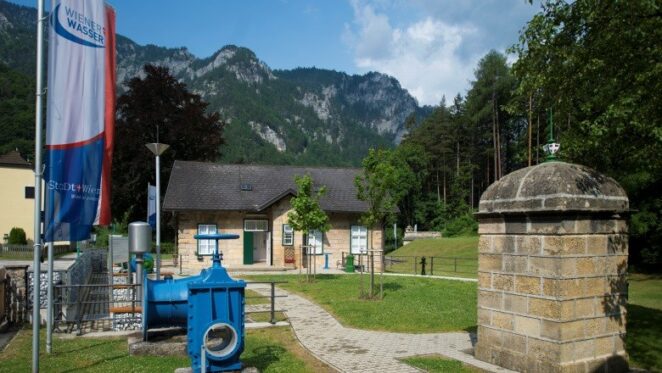
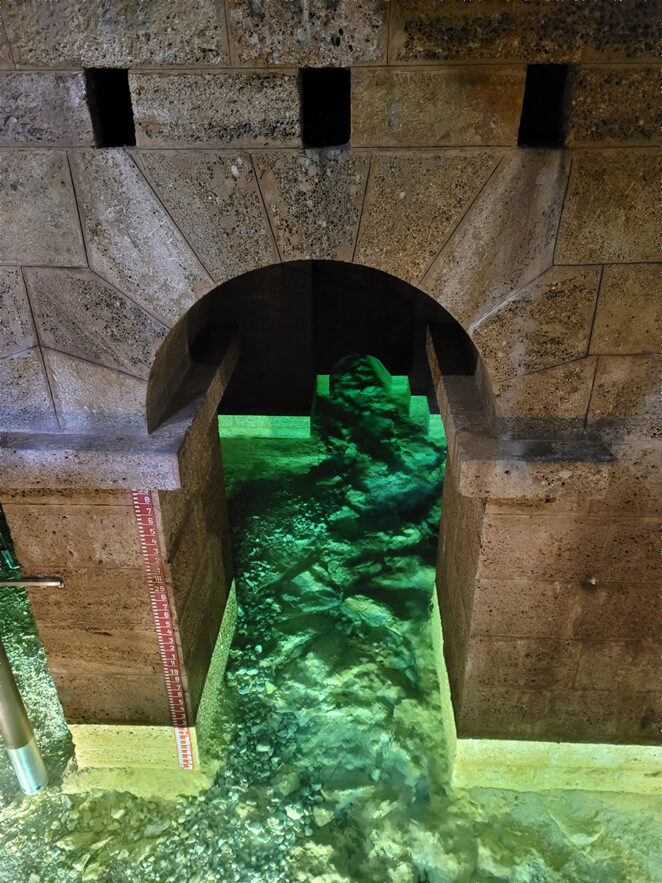
- Resources from the field trip:
Day 2: Governance Simulation
Following the stage-setting in the Rax mountains, during day 2 of the workshop participants took part in a Governance Simulation – or ‘serious game‘. Set in a fictional mountain region – the Tamlar Range – participants where split into five diverse interregional teams, each of which formed the government of a fictional country. Each country had its defined territory, population, energy profile and resource endowment.
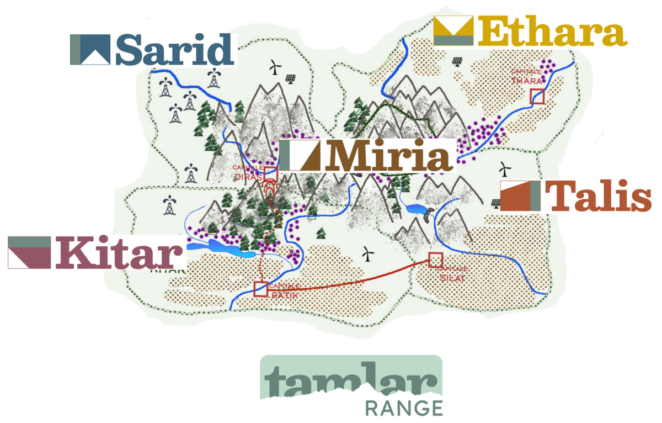
The teams were tasked with increasing the adaptive capacity of their country through purchasing national and, in collaboration with other countries, regional assets such as for example a crop research centre or railway network. The countries had the collective task of formulating a regional governance instrument that supports adaptive capacity and increases resilience against climate change. As a result, the ‘Tamlar Connection’ was drafted as a framework convention for the mountain range and including stakeholders such as civil society and science.
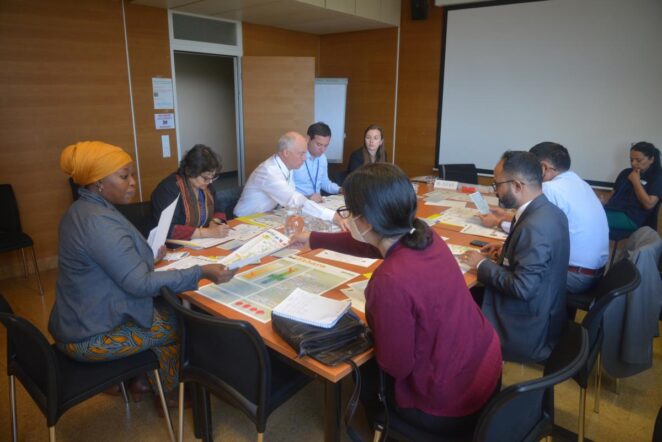
The negotiations in the simulation took account of previously communicated seven governance dimensions (see below). The simulation comprised of three cycles, in which positive events (e.g. a new funding scheme) and negative events (e.g. a heat dome) affected the respective resources. Each round offered participants the opportunity to share and apply their knowledge and experience.
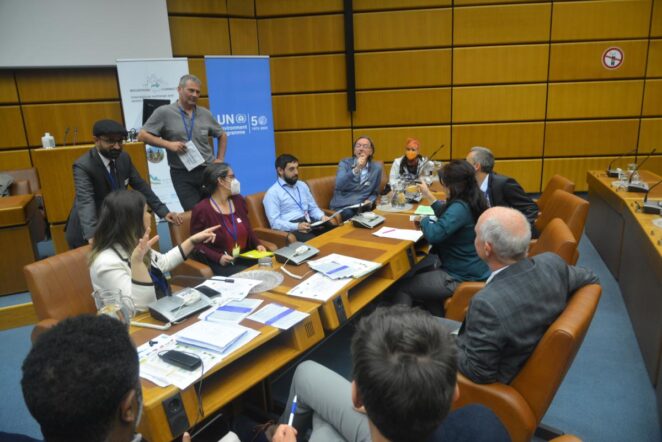
- Resources from the governance simulation
- Read more about the Tamlar Range Governance Simulation[full simulation details and guidance forthcoming]
- Explore the governance dimension of mountain ranges
- Explore how regional cooperation happens in different mountain ranges
Day 3: Reflection and way forward
The third day concluded with reflections and debriefing on the governance simulation and what participants learned from the process. Everyone agreed on the importance of regional collaboration and interregional exchange to increase resilience and the sustainable development of mountain communities and ecosystems.
During the last session participants and the workshop hosts shared their key takeaways for mountain range governance and collaboration for future interregional exchange, strengthening capacities of mountain range actors.
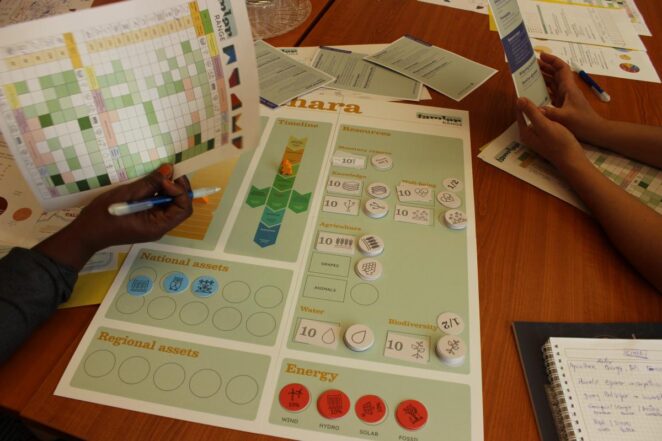
Mountains Connect Online
Engagement and learning during the workshop was bolstered by the sharing of an array of governance insights and resources in the run up to the event.
The website mountains-connect.org was set up to share videos summarising key governance dimensions: territoriality, institutional formality, sectoral integration, vertical coordination, civil society participation, science-policy interface, and funding arrangements.
The website also features articles describing the existing governance arrangements and their history in key mountain regions including the Alps, Andes, Caucasus, Carpathians, Central Asia, East Africa, Hindu Kush Himalaya, and the Pyrenees.
This resource is open access and available for all to use.
Visit mountains-connect.org ->
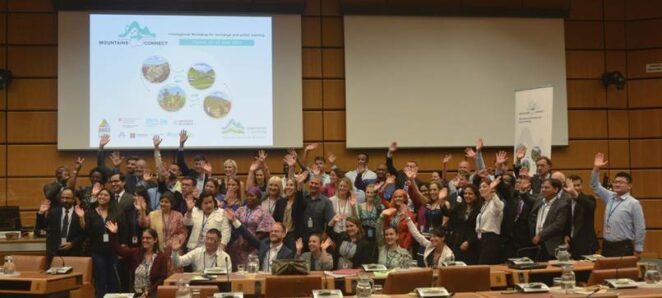

Comments
There is no content